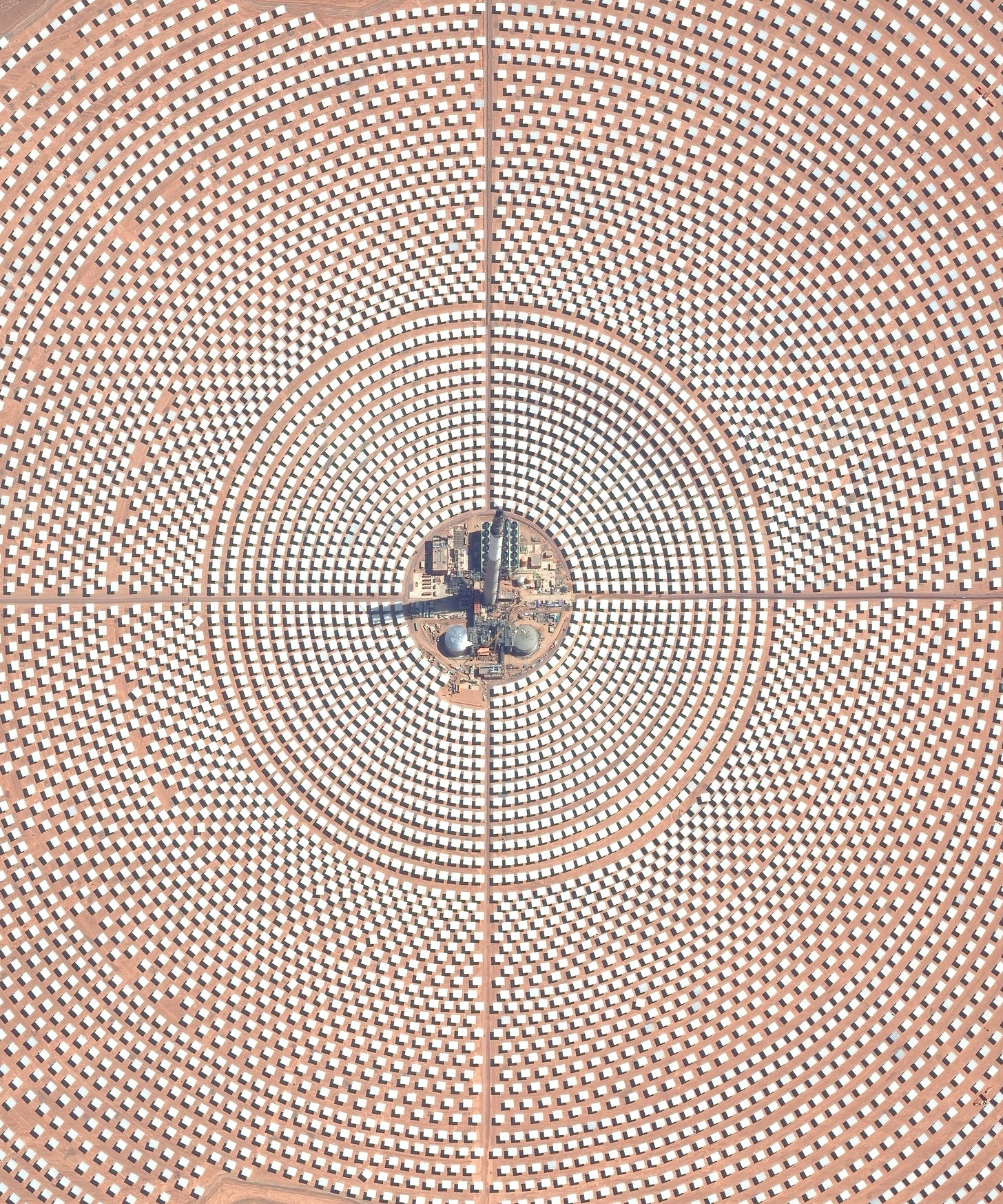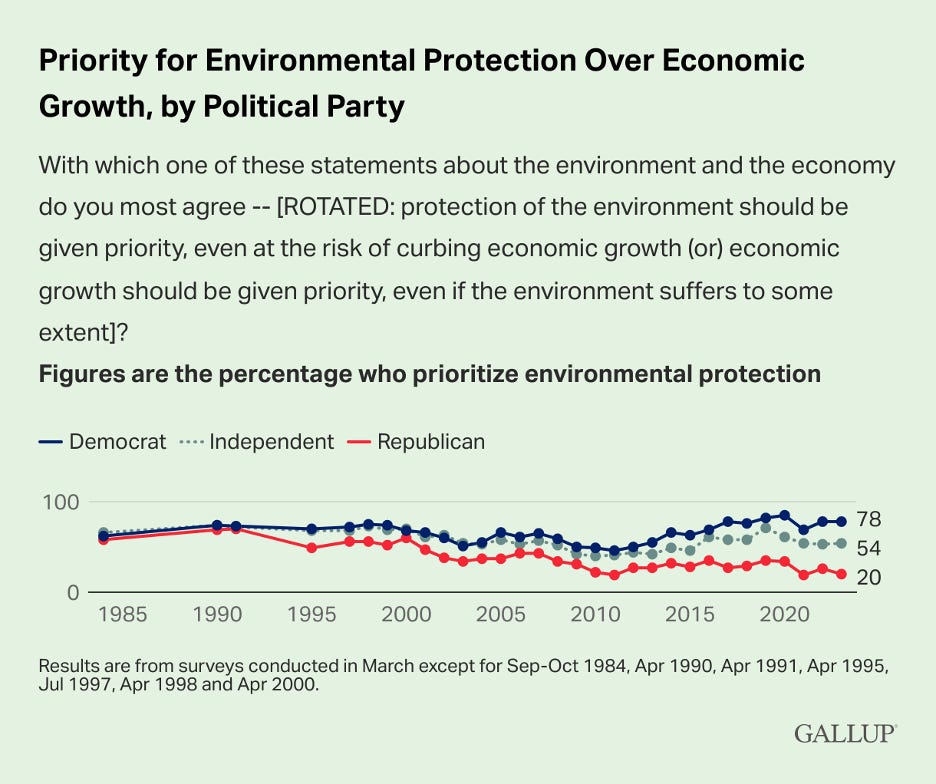TL(PM) DIGEST: We regret to inform you that France's President Macron has once again put his foot in his mouth
Plus corporate America feeds at the green energy trough, partisan polarization on environmental protection versus economic growth, and plans to use renewable energy to connect Europe and North Africa

1. Fallout from Macron’s China trip continues
What happened? The diplomatic fallout from French President Emmanuel Macron’s recent chummy state visit to Beijing continues to roil Europe and East Asia, a trip followed up by an interview in which Macron appeared to distance himself from the China policy approaches of both United States and European Commission President Ursula von der Leyen and suggested that a Chinese invasion of Taiwan would not concern Europe. Macron’s trip and remarks have created divisions within the European Union as well as confusion in the United States and Asia, with Taiwanese officials saying they were “puzzled” and Japanese commentators arguing Macron had undermined Tokyo’s attempt to build diplomatic consensus.
It will be up to German Foreign Minister Annalena Baerbock to start cleaning up Macron’s mess during her upcoming visits to China and South Korea, where she expects to “underline the common European conviction that a unilateral change of the status quo in the Taiwan Strait, and even more so, a military escalation, would be unacceptable.”
Why does it matter? Macron’s remarks have caused divisions within the European Union, with many other EU member nations taking a much more skeptical eye toward Beijing and favoring President von der Leyen’s “de-risking” policy instead. These divisions in turn give both Beijing and Moscow hope that they will be able to divide the EU and split it from the United States—something that has implications for Ukraine as well as Taiwan.
TLP’s take: Macron certainly has a talent for diplomatic blunders, but this one takes the cake by simultaneously undermining the American and allied positions in both Europe and the Pacific. He claims that being an American ally does not equal being a “vassal,” and that France reserved “the right to think for ourselves”—if only there were any evidence of actual thought in Macron’s recent “romantic diplomacy” and rhetoric.
2. Green transition opens corporate lobbyist spigot
What happened? The Economist reports that new federal subsidies for clean energy production in the Inflation Reduction Act and the Bipartisan Infrastructure Law have spawned a massive corporate lobbying campaign: “The energy industry as a whole spent nearly $300m last year on lobbying, the most since 2013.”
Why does it matter? Between these two pieces of legislation, nearly $800 billion in federal money will go out to the private sector over the next decade in the push for clean energy infrastructure. More than 2,000 different lobbying and corporate groups alone sought to influence the Inflation Reduction Act, a figure that is sure to increase.
TLP’s take: Successful implementation of the Biden administration’s clean energy programs remains vital to America’s long-term energy independence and economic development. Working-class voters are already skeptical about the costs of the green transition, so it’s critical that this process unfolds in a completely transparent and accountable manner—public funds must go to national purposes and not just line the pockets of Big Green energy companies.
3. Massive partisan gap on tradeoffs between the environment and the economy
What happened? A new Gallup poll shows a massive partisan gap in perceptions about the relative importance of the environment and the economy. Seventy-eight percent of Democrats prioritize the environment over the economy compared to only 20 percent of Republicans—a 58-point gap that’s the largest on record since 1984.
Why does it matter? Just over half of all Americans believe that environmental protection should be a higher priority than economic growth. But the partisan differences today are stark and have only grown wider since the early 1990s.
TLP’s take: In principle, there doesn’t have to be a tradeoff between environmental protection and economic growth—people want steady work and access to consumer products along with clean air and water and nice parks. With technological and scientific advances both goals remain in reach, but partisan politics precludes any sensible middle ground and turns every effort into an unnecessary ideological battle.
These partisan positions should be discarded in favor of a national agenda to promote energy independence and cleaner sources of energy that provide good jobs, abundant energy, and a high quality of life for everyone.
4. Big Sun takes advantage of Morocco to export solar energy to Europe
What happened? The Washington Post reports on embryonic plans to build massive solar power farms in North Africa and export the resulting energy to Europe—meeting as much as 15 percent of the continent’s demand. Morocco, for instance, already hosts the world’s largest solar plant and exports it to Spain via undersea electrical cables.
Why does it matter? Solar energy exported from sunny North Africa could go a long way to replacing Russian natural gas and helping Europe meet its energy needs without resorting to coal or other sources that would set back the continent’s transition to carbon-free energy. These projects would be economic boons to countries like Morocco while serving “as a test for the concept of shipping green energy from sunny parts of the world to regions where the sun doesn’t shine as brightly.”
TLP’s take: If these projects move forward and start supplying solar and wind energy to Europe at scale, it'll be good for Europe, North Africa, and the world. There of course remain challenges and questions surrounding the construction of massive renewable energy farms in autocratic monarchies like Morocco, but the potential for international collaboration and cooperation remains strong.
Just one more thing…
Take a look at the winners of the Washington Post’s annual Peeps diorama contest, including marshmallow versions of Washington’s cherry blossom festivals, pickle ball contests, and performances by Taylor Swift and Rihanna.








